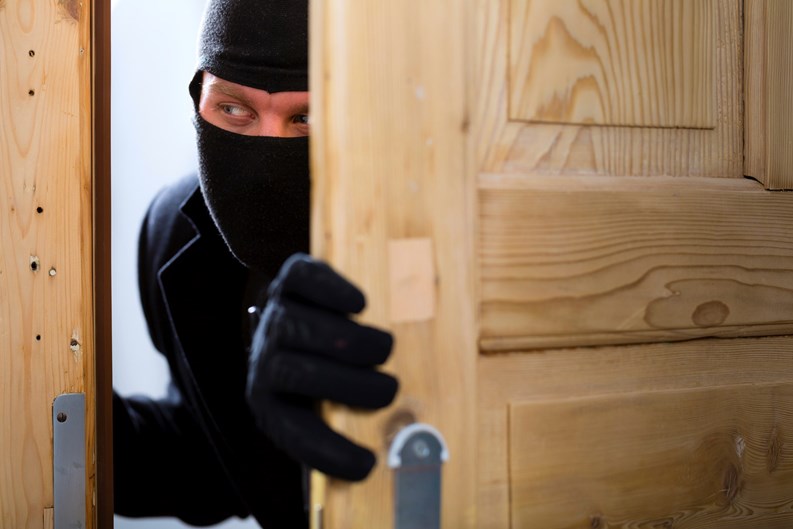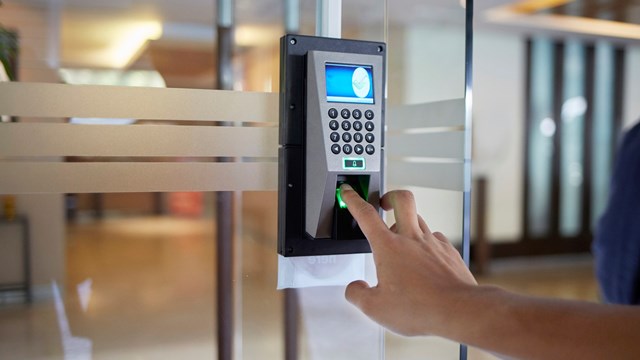Man is but a flawed creature, cursed by his very nature to succumb to his own worst impulses. And one of those impulses might lead to criminal activity. Unfortunately, crime is an inevitability, even in a fairly secure condominium or cooperative residential establishment. Whether perpetrated by an outsider or a wolf in sheep's clothing living among the residents, shady stuff is going to go down. And when it does, a board will most likely be faced with questions from its shareholders or owner base, such as “How can we keep everyone safe in today's uncertain world?” While that question cannot be answered definitively, there are certainly things that you can suggest and methods you can take to help placate a deservedly anxious community.
Big Brother
One of the easiest and most reliable ways to secure your property and put your residents at ease in the aftermath of a crime is to install additional surveillance equipment. That said, there's a fine line to walk here, as a board does not want to go overboard and turn its once-warm community into a walled police state.
Oftentimes your local police department will offer a service whereby an officer will walk your property and offer suggestions as to how it can be safer. If this is available in your neighborhood, it's certainly something you'd be advised to explore.
“The two things that the police department will invariably suggest to any board is to install additional cameras and additional lighting,” says Eliot H. Zuckerman, a partner in the real estate law practice at Smith, Gambrell & Russell, LLP, which has offices in New York, Atlanta, Austin, Jacksonville and Washington D.C. “You'll want to illuminate areas that may be unclear, and survey areas that are not visible to everyone, like the mail room or the rear yard or a package room or stairwells or hallways; security may occasionally override privacy concerns, and you should look at that on a case-by-case basis.”
You're on Notice
Another tactic a board may take in the wake of a criminal incident is to encourage awareness among residents.
“If we're dealing with general crime wherein we don't know who the perpetrators are, you'll want to post notices, tell people to be more vigilant, and urge them to dial 911,” says Stephen Elbaz, the founder and president of Esquire Management Corp. in Brooklyn. “One of the secrets that I've learned is that, to my understanding, there's latitude within individual police precincts in regard to the allocation of patrol cars. So if one neighborhood or building or area all of a sudden gets a rash of calls, that neighborhood will now be subject to increased patrols.”
Elbaz also urges boards to impart upon their constituents that neither the board nor the property manager can act as a catch-all for every transgression. “At the end of the day, the board and management only retain so much responsibility; neither do the police. There's only so much they can do to protect residents.” Thus, residents are best advised to remember the famous New York slogan that goes “if you see something, say something,” and not hesitate before reaching out to appropriate authorities.
It's Coming From Inside the House
While the specter of strange ne'er-do-wells may loom large in the public consciousness, oftentimes crime stems from people who already have legitimate access to a property, or intruders gaining entry due to a homeowner's negligence.
“The most common issue that has been brought to my attention regarding crime is when a security breach is caused by a unit owner, through failure to lock or properly secure a door, window or terrace,” says Leni Morrison Cummins, an attorney and member of the Real Estate Practice Group at the law firm of Cozen O'Connor, which has offices in New York City, New Jersey and around the country. “This becomes problematic because, once the intruder gains access to one unit, they can thereafter roam the corridors freely and test for other open doors. In instances like this, boards can pass security policies regarding the locking of doors and windows, or even install security bars on vulnerable points of entry.”
Another security option is adopting a key fob system. “Key fobs cannot be duplicated, unlike a normal key, which can easily be copied,” explains Andrew P. Brucker, a partner with the law firm of Montgomery McCracken Walker & Rhoads LLP, with offices in New York, New Jersey, Pennsylvania and Delaware. Also, if lost, a key fob can be deactivated, and some companies can program them such that they can only be used during certain hours or on particular days.
“Fobs are very important with non-door staff buildings,” Brucker continues. “When it comes to those properties with a staff, there is a very basic rule that delivery people and strangers should just not be allowed to go upstairs. I certainly understand that people do not want to go down to pick up the Chinese food they'd just ordered, but they need to consider the safety and security of their fellow residents.”
What's Next for the Board?
If a board realizes that a resident is behind a criminal act, they may be faced with a tough decision. “They have the option of either speaking with that person and arranging for that person to amicably sell and leave, or, in the most drastic cases, actually hire an attorney to commence proceedings to take away that person's right and ability to live in that apartment,” says Elbaz. “In a co-op it becomes a holdover case for eviction, and there's a similar scenario in the condo world. But litigation is rare, extreme and expensive.”
“It's imperative that you install adequate lights and cameras in the common areas, urge residents to be careful, be highly selective as to with whom they share a key, and secure their valuables, even within their own apartments,” insists Zuckerman.
Unfortunately, a predilection for criminal activity is embedded in our DNA. As Zuckerman says, “stuff is going to happen, and you can't prevent it completely. It's just not possible.”
Mike Odenthal is a staff writer for The Cooperator and other publications.







Leave a Comment